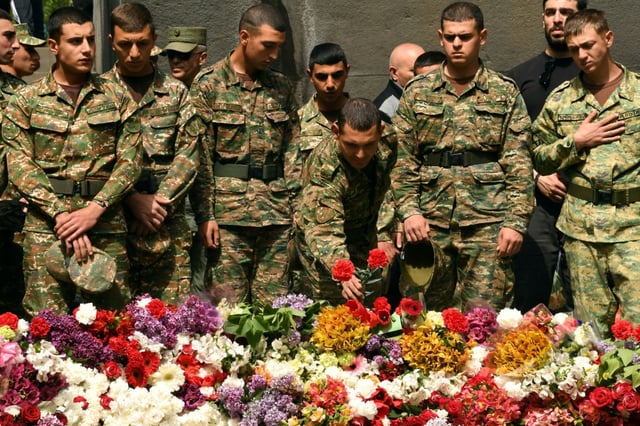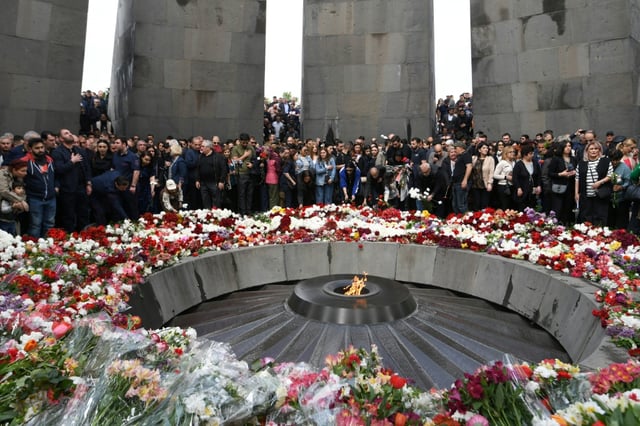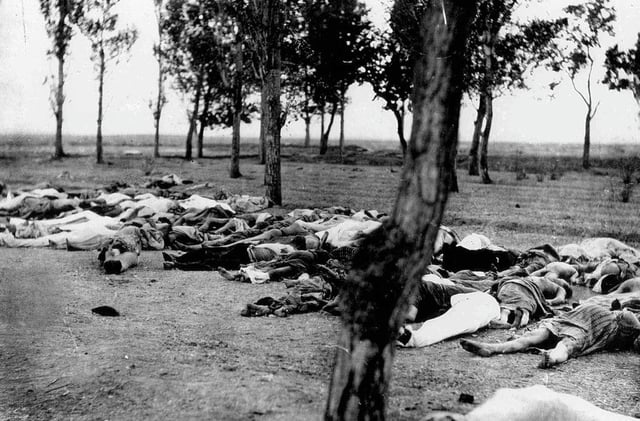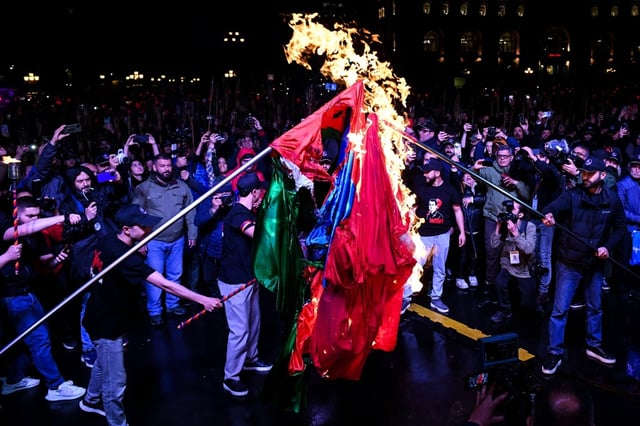Overview
- On April 24, tens of thousands of Armenians gathered at the Tsitsernakaberd memorial in Yerevan to commemorate the 1915–1916 mass killings by Ottoman authorities, despite a lack of major official events this year.
- Prime Minister Nikol Pashinyan recently stated that genocide recognition is no longer a priority for the Armenian government, as it focuses on peace talks with Azerbaijan and potential normalization with Turkey.
- Armenia and Azerbaijan have agreed on the text of a peace treaty aimed at ending decades of hostilities, following Azerbaijan's 2023 reclamation of Nagorno-Karabakh and the displacement of over 100,000 ethnic Armenians.
- Turkey continues to deny the genocide, estimating Armenian deaths at 300,000–500,000 and attributing them to civil strife, while 34 countries, including the U.S. Congress, officially recognize the killings as genocide.
- Public sentiment in Armenia reflects skepticism toward rapprochement efforts, with many citizens expressing distrust of Turkey and Azerbaijan and dismay over the government's shifting priorities.



